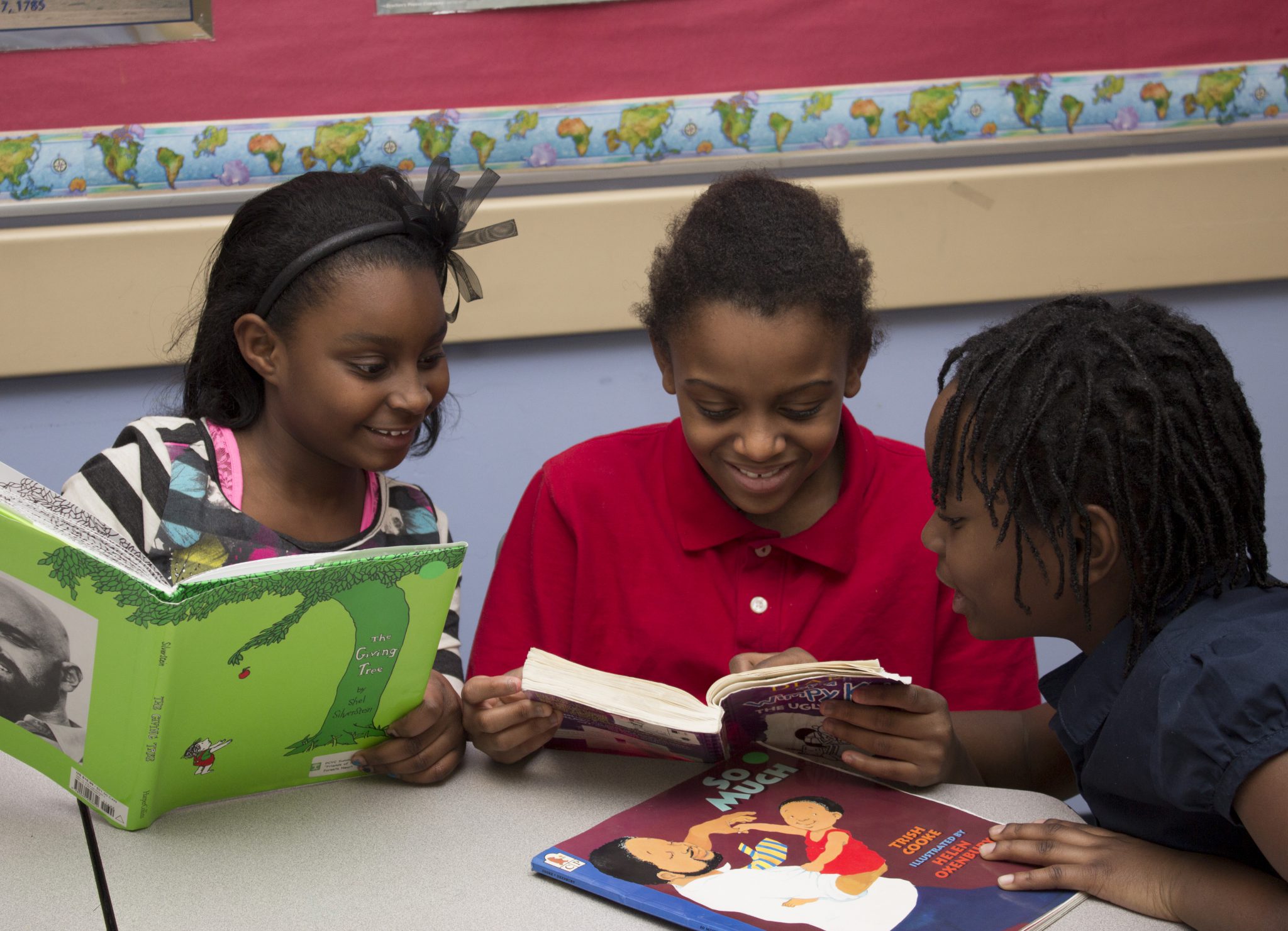Early Grade Literacy
Goal: Every child meets reading proficiency benchmarks in 3rd grade.
Reading at grade level is one of the strongest predictors of later success in school. Students at or above grade level reading in earlier grades graduate from high school and attend college at higher rates than peers reading below grade level. One longitudinal study found that students who do not read at grade level by third grade are four times more likely to drop out of high school than proficient readers.Literacy, across the cradle to career continuum, is critical to a child’s academic success. Early grade reading is a particularly crucial milestone, as basic reading skills are being reached and measured. Though state indicators for grade level reading vary, data shows that disparities in literacy during the early grades are linked to persistent achievement gaps. If children are behind by third grade, they generally stay behind throughout school. In the early grades, children begin to transition from learning to read to reading to learn. At these grade levels, the reading curriculum becomes more complex in both meaning and vocabulary. Historically, teachers and researchers have noticed that most children’s growth in reading skills tends to stall at third or fourth grade coining this phenomenon the “fourth grade slump.” Estimates from recent studies suggest that by third or fourth grade, 20% of children are dysfunctional readers, with a markedly higher incidence of reading problems in schools serving disadvantaged students. One national survey detailing reading achievement of fourth graders indicated that 44% of school children were reading below a basic level of achievement.
Generation Next Strategies
• Literacy Tutoring Network: Literacy Tutoring Network: In 2014, Generation Next created the Literacy Tutoring Network, a collective table of 12 literacy organizations that aim to close gaps in 3rd grade reading outcomes for students of color in Minneapolis-Saint Paul through high-quality tutoring. The network is committed to focusing on racial equity and using data to drive practices that result in all children reading at grade level by the end of 3rd grade.
• Generation Next Reads: In 2015-2016, Generation Next led a campaign to recruit volunteers to serve as literacy tutors and receive training, with the goal of increasing both the quantity and quality of tutors in Minneapolis and Saint Paul.

Generation Next Accomplishments
• In 2016-2017, a total of 6,530 students were tutored by Literacy Tutoring Network organizations. Tutored students are on average meeting or exceeding the literacy growth expectation for their grade; 67% of students served by Literacy Tutoring Network organizations achieved the growth target, with a greater percentage of students in early elementary grades meeting the growth expectation; kindergarteners outperformed the other grades at 79%.
• Network members found participation in the Literacy Tutoring Network valuable, reporting benefits such as access to resources and ideas, an improved understanding of data, the courage and momentum to push racial equity in their own organizations, and professional connections.
• Generation Next leveraged the FastBridge assessments at no cost for network members starting in 2015; to date, 10 of 12 organizations in the network implemented the assessments in 2016-2017. The network created common measures that allowed us to understand data across programs.
• Network members conducted a racial equity assessment with participation from over 100 staff members and 553 tutors; the data was used to create action plans for each organization.
• Network organizations accomplished 74% of their action plan goals, including improved intercultural development training for staff and tutors, more culturally relevant materials that reflect the background of students and better implementation of the FAST assessments.
• The Gen Next Reads campaign recruited a total of 274 individuals during the 2015-2016 school year. Of the 274 volunteers, 122 (45%) received training and became active tutors.
• In 2015, Generation Next provided $20,000 worth of culturally specific books to network members through a grant from the General Mills Foundation and First Book.
